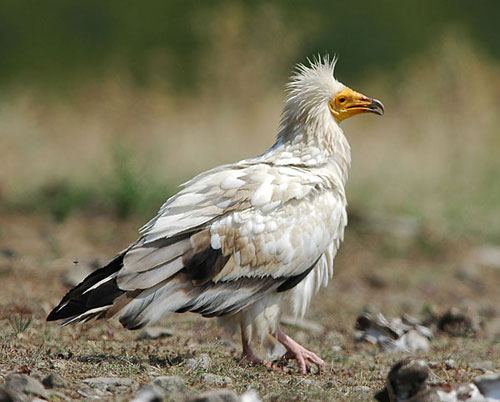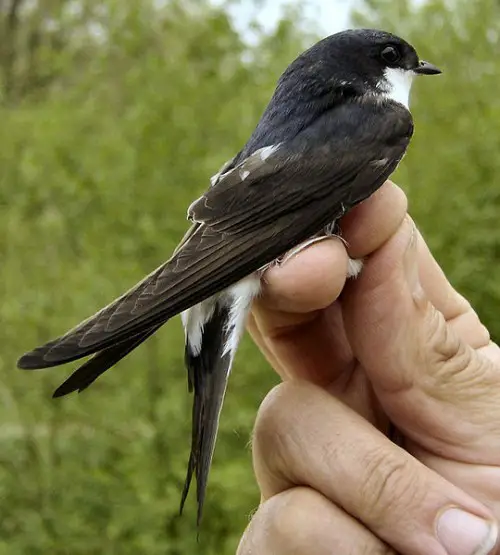Egyptian Vulture
The Egyptian Vulture is also called the Pharoahs Chicken.
It has a very lengthy association with men, and drawings of it have been found inside the tombs of Egypt.
The Egyptian Vulture is quite rare, due in part to some campaigns of poison where it ranges and breeds. Egyptian vultures are very sociable animals. They are white in color or yellowish white, with black wing feathers.

Egyptian Vulture
They grow to about a foot or more long, and will often be found near villages or dump sites.
Young vultures begin life with brown colored feathers and gradually lighten in color each time they molt.
It’s not until they reach about the age of seven do they become the entire white plumage that is the norm for adult vultures.
Different from a normal vulture, these vultures do not soar on the thermals, but rather simply ride the air waves and are able to move a great deal lower to search for carrion to eat.
Vultures feed on carcasses, rotten fruit, eggs, snails, and will once in a while catch live prey. They aid humans greatly in that they eat the dead or dying animals which might otherwise litter the landscape but they can also consume animals who have harbored disease, or whose corpses are now infected with such things as botulism, which is killed in their intestines.
They are therefore one of the greatest assets to have around because they prevent the spread of such infections to humans. Egyptian Vultures are famous for the method in which they will open an ostrich egg to consume it.
Picking up stones in their beaks they will target the egg and throw the stone with enough force to crush it and then drop to the ground to consume the eggs Vultures mate for life and will breed any time from March until about August.
The young are raised by both parents.
They nest from ground level up to very high altitudes and will build a nest from branches, feathers and whatever else they might find.
These nests are usually within a rocky area, or in a small cave. The same nest may be used repeatedly. They usually lay about four eggs, over a period of a few days, and will incubate them for about 45 days.
At about 3 months the young vultures are already flying.
Find out more about the Egyptian Vulture over at Wikipedia »


im doing a project on these righteous birds
When was this article last updated?